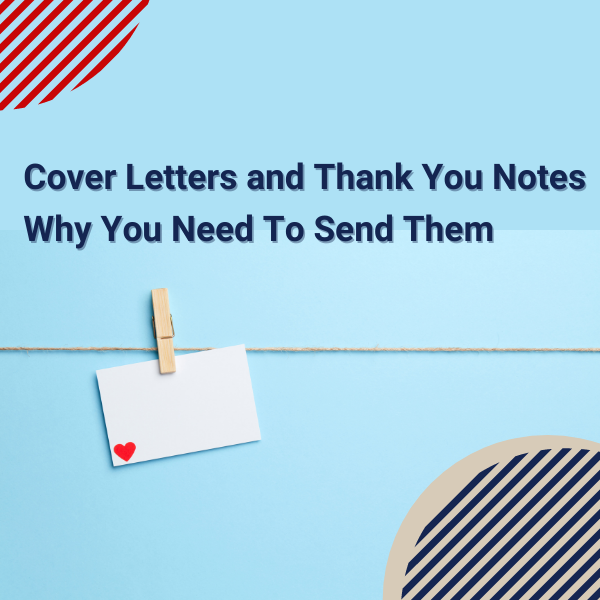
30 Jul
Cover Letters and Thank You Notes: Why You Need To Send Them
Do you send cover letters?
How about thank you notes?
If you’re serious about your job search, you should.
I’ve read quite a few posts about cover letters and thank you notes. I’ve written several myself.
If you’re serious about your job search you need to take every opportunity to sell yourself to recruiters and employers.
Yes, an achievement-based resume and compelling LinkedIn profile that demonstrate your value are essential.
But don’t discount the value of cover letters and thank you notes.
Cover Letters
For every recruiter who says they don’t read cover letters, there is one who says they do. And the cover letter can be a deciding factor in whether a candidate gets contacted or not.
Long boring notes that begin “Please find attached” are not going to get you far.
Effective cover letters certainly can make a difference on whether or not they contact you for an interview. Use them to:
- Provide additional insights specific to the job, like how you’ve solved a problem they face for previous employers.
- Add a third dimension, i.e. a bit of personality, maybe, how overcoming a challenge or something you learned early on shaped your career
- Share your excitement about the company like your drive to help others is why you seek a sales job with a pharma company.
Thank You Notes
As with cover letters, for every recruiter or employer that says that thank you notes don’t make a difference, you can find one that says a compelling thank you note can tip the scale in the candidate’s favor.
Since you don’t know where the interviewer stands the smart thing is to send a thank you note. According to a 2019 CareerBuilder survey, 57% of candidates don’t bother, so sending one immediately makes you stand out in a good way.
Go beyond the perfunctory “thank you for your time” blah, blah, blah.
- Share a few things you’ll do in the first 30 days if hired. Don’t give away everything, just a taste.
- Address any concerns that came up during the interview. For example, a certificate you earned or a program you’ll complete shortly.
- Mention anything you forgot during the interview that will make you a stronger candidate. Maybe you speak a second language or a leadership seminar you took a few years ago.
Today, cover letters and thank you notes are sent via email and sometimes referred to as eNotes. Avoid the reader’s need to scroll by keeping your notes to about 125 words.
While cover letters and thank you notes serve different purposes, they each give you the opportunity to stand out, in a good way, from the majority of candidates that just don’t bother.
